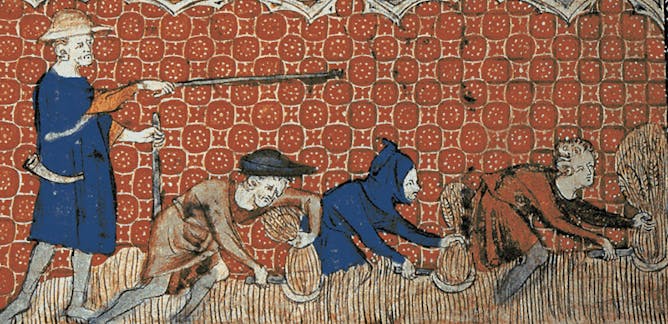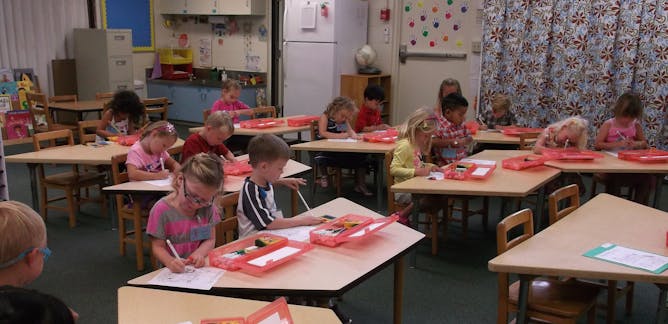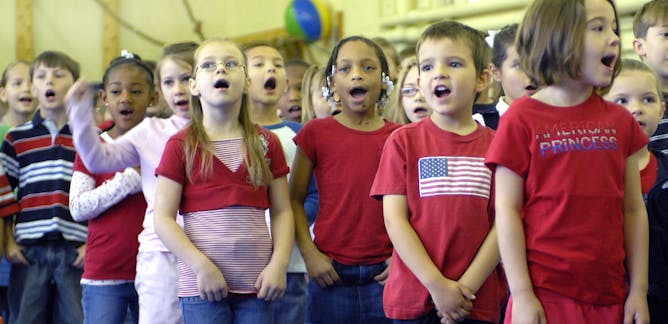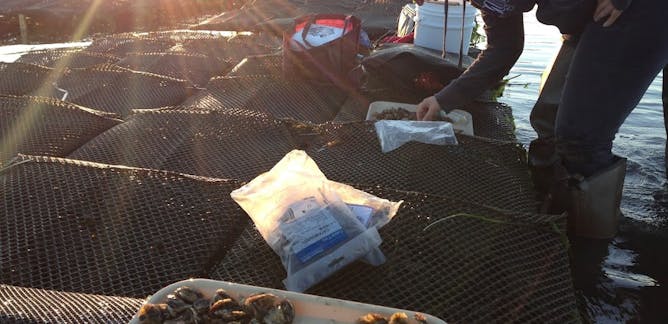| |
|
|
|
|
|
|
| |
|
Editor's note
|
|
In 2017, academic authors explained to The Conversation’s readers new research on slavery’s legacy, Saturn’s moons, Obamacare, fidget spinners and just about every topic in
between.
Of the more than 1700 stories The Conversation US published, we culled from the list 10 that were especially popular with readers and republishers, and asked you which ones made a lasting impression on you.
We don’t know what the New Year will bring, but we can promise that The Conversation will bring you thoughtful, fact-based analysis from experts on the events large and small of 2018.
Thank you for your readership and your commitment – we always welcome your feedback and ideas. And, as we look to sustain and expand The Conversation in the coming year please consider making a donation to support this unique collaboration between academia and journalism.
|
Joel Abrams
Manager, Media Outreach
|

|
|
Top vote-getter
|

A supporter of President Donald Trump, center, argues with a counterprotester at a rally in Boston on Saturday, Aug. 19, 2017.
AP Photo/Michael Dwyer
Laurie Marhoefer, University of Washington
We have an ethical obligation to stand against fascists and racists in a way that doesn't help them.
|
Runner-up
|

pimchawee
Jean Twenge, San Diego State University
According to a new analysis, the number of US teens who felt "useless" and "joyless" grew 33 percent between 2010 and 2015, and there was a 23 percent increase in suicide attempts.
|
The rest
|

Joshua A.T. Fairfield, Washington and Lee University
The companies that make our digital devices think – and act – like they still own them, even after we've bought them. Are we becoming digital serfs?
| |

Brad Christerson, Biola University; Richard Flory, University of Southern California – Dornsife College of Letters, Arts and Sciences
A Christian movement led by popular independent religious entrepreneurs, often referred to as 'apostles,' is changing the religious landscape of America.
|

Christopher P. Brown, University of Texas at Austin
Kindergarteners are under tremendous pressure – doing as many as 15 academic activities in a day, with a shorter recess time. What is the long-term impact?
| |

Bert Spector, Northeastern University
He campaigned on the notion that his business experience would equip him to 'make America great again,' but running a family company is poor training for the presidency.
|

Nicholas Dodman, Tufts University
Twitter recently blew up with posts wondering about the feline fascination with taped squares on the ground. An animal behavior expert explains it's not magic that draws Fluffy to the #CatSquare.
| |

Charles R. Venator-Santiago, University of Connecticut
Over the years, Puerto Ricans have in fact been granted three different types of U.S. citizenship, but questions about their rights and equal treatment as citizens still remain.
|

Steven M. Demorest, Northwestern University
Children with difficulty singing can be labelled as 'nonmusical' by parents, teachers and pop culture. This toxic idea of 'talent' can deprive people of music's benefits for the rest of their lives.
| |

Colleen Burge, University of Maryland, Baltimore County
Oysters grow in seawater and filter their food from it, so how do you shield them from waterborne diseases? Scientists are working to develop strains that are resistant to a fast-spreading herpes virus.
|
|
|
Write-in votes
|
-
Patricia A. Alexander, University of Maryland; Lauren M. Singer Trakhman, University of Maryland
Digital textbooks might be less cumbersome. But a new series of studies finds that reading from screens can hamper our ability to process and retain information.
-
Dale R. Durran, University of Washington
The 2016 election made clear that the Electoral College does not weigh votes from all states equally. A new analysis suggests the power of your vote is closely linked to voter turnout in your state.
-
Joelle Abramowitz, University of Michigan
Once young women could access health insurance through their parents, they seemed to make very different decisions about contraception, abortion and marriage.
-
Alma Gottlieb, University of Illinois at Urbana-Champaign
Opening the minds of worried new parents to other ways of raising children may assuage fears that if they fail to 'do the right thing,' their children will be doomed.
|
|
| |
| |
| |
| |
| |
| |
|
|
|
|
|
|
| |